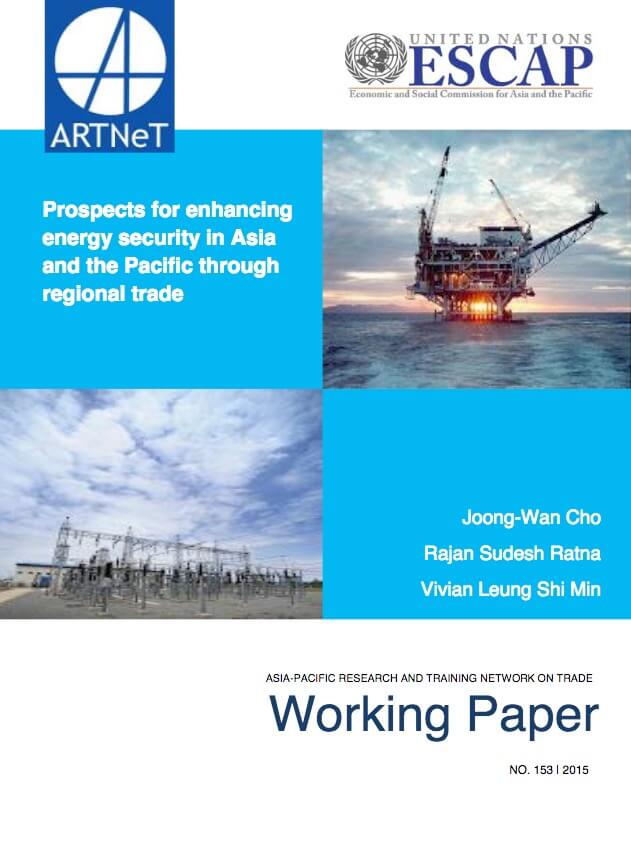Prospects for enhancing energy security in Asia and the Pacific through regional trade

Growing demand for raw materials and the expansion of the productive capacity of emerging economies have exacerbated the region’s high resource dependence, especially in energy, such as fossil fuels. A growth in energy demand, coupled with the high price volatility and dependence on fossil fuels, has made efforts for energy security more challenging than before. The Asia-Pacific region as a whole has increased its share of global commodity imports, across all sectors (minerals and metals, fuels and agriculture) over the last five years (2009 to 2013), from 26% to 30%, based on nominal values. Growth in energy demand, coupled with the increasing price volatility and dependence on fossil fuels, has made efforts for energy security more challenging than before. The Asia-Pacific economies hold vast amounts of fossil and non-fossil energy resources. As a region, it is a net exporter of coal, natural gas (through the pipeline), and electricity, but a net importer of oil and liquefied natural gas (LNG). Owing to accelerated levels of economic development, region’s demand continued to grow. This increased demand is not being met with a sufficient rise in production, leading to reduced exports and increased import demand. Despite holding vast coal and natural gas reserves, demand for fossil fuel in Asia and the Pacific is increasingly being met by imports with long term effect on its trade balance. To enhance energy security, which is essential for inclusive and sustainable growth, countries of Asia-Pacific will have to strengthen energy cooperation, build regional connectivity, and invest in adequate infrastructure. Growing import dependency coupled with emergent regionalism has certainly enhanced the prospects for regional energy cooperation and integration of the energy sector, which can enhance the possibility of regional energy security. However, due to its diverse nature, such cooperation is confined to national initiatives rather than at a pan Asia-Pacific or sub-regional levels. The paper examines the prospects for enhanced energy security through regional energy trade and integration by exploring the case of the Asia-Pacific Trade Agreement (APTA). The paper concludes by stating that regional cooperation for achieving energy security collectively is a viable alternative to traditional individual or bilateral attempts and that the Asia-Pacific Trade Agreement is an ideal vehicle for providing energy security through enhanced trade due to tariff concessions to be offered on energy products and also through expansion of its membership to the energy supplying countries.
